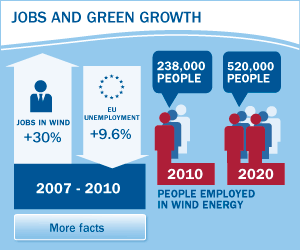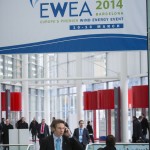CEOs of six leading European energy companies voiced their support for a strong 2030 climate and energy framework at a EuropeBusiness press conference on Wednesday 12 February. As stated in a EuropeBusiness press release, the CEOs requested EU Heads of State to follow in the footsteps of the European Parliament and vote in favor of ambitious, nationally binding renewable energy targets.
There was a clear consensus between the CEOs that renewable energy and policies that encourage renewable energy are in Europe’s best interest; a binding 30 percent 2030 target could create 570,000 more jobs and save €260 billion in fossil fuel imports compared with only a greenhouse gas target, they said. As they answered questions from journalists, the CEOs also identified a number of other benefits of strong 2030 targets.
There are significant economic benefits: Alstom Senior Vice-President Denis Cochet said Europe can save €1.5 billion a year in power generation costs by establishing a more interconnected grid. Vestas CEO Anders Runevad said, “Existing policy commitments have helped us to reduce the cost of energy up to now. Further reducing the cost of energy requires the investment certainty that an ambitious, long-term EU policy commitment provides. Let’s not stop before crossing the finish line.”
There is the benefit of improving energy security-sufficiency: RES Med CEO Jean-Marc Armitano explained that the targets are crucial for limiting Europe’s dependency on foreign fossil fuels.
And there is the benefit of reassuring investors: Rafael Mateo, CEO of Acciona Energia said “We need stable, long-term frameworks and legal certainty for investors because energy is a long-term business.” He pointed out that long-term frameworks are needed in order to match the long-term investments that are expected to be made in the industry.
Enercon Managing Director Hans-Dieter Kettwig criticised the utility companies that aren’t using renewables, saying that they need to be “more proactive” and “accept a new industry is coming.” The EU is responsible for encouraging the emergence of this new industry with its far-sighted policies until now; ERG Renew CEO Massimo Derchi called out EU Commission President Jose Manuel Barroso for committing to EU-wide energy policy but then essentially renationalizing it by not including binding national targets.








